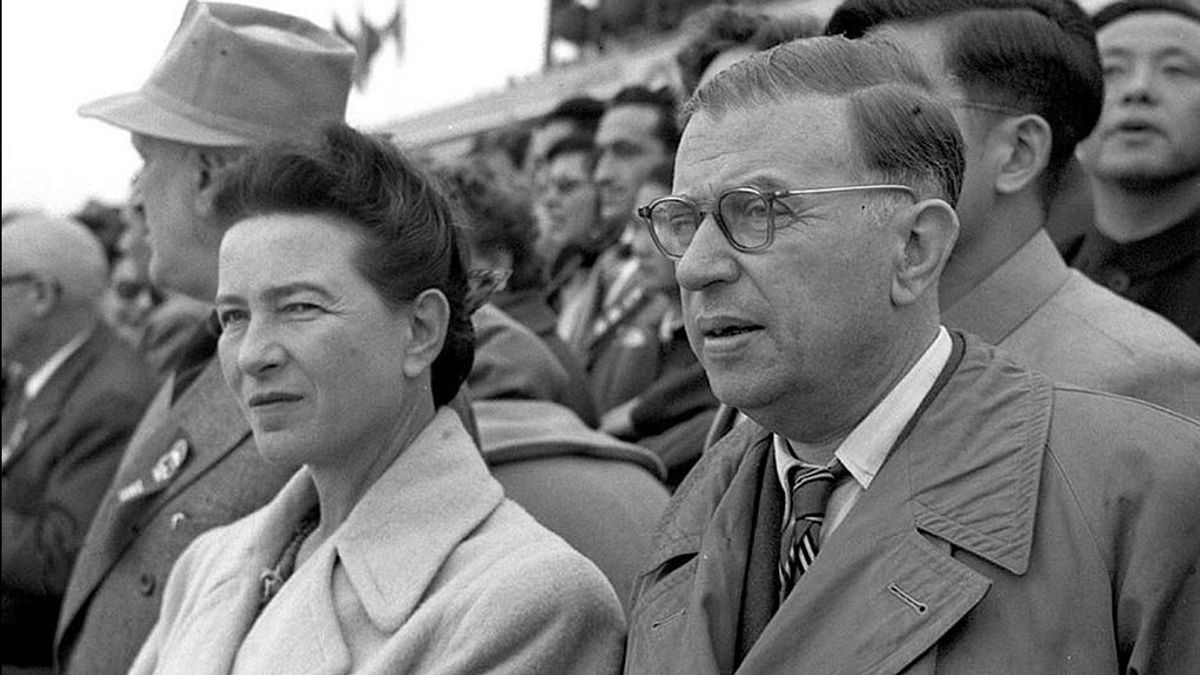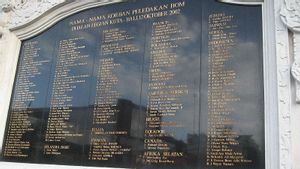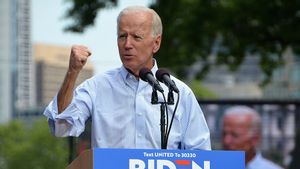
JAKARTA - On October 22, 1964, the Philosopher Jean-Paul Sartre was awarded the Nobel Prize for literature. But he refused. He became the first person to refuse the Nobel Prize.
Sartre says he has always refused official awards and doesn't want to be "institutionalized." In an interview with The Guardian, Sartre told the press that he turned down the Nobel Prize because it would limit the impact of his writing. He also expressed regret that his decision gave rise to a scandal.
Sartre was chosen to receive the Nobel because he was considered to have a work that is rich in ideas and full of the spirit of freedom and the search for truth. His work had a wide influence in that era.
Sartre then spoke of his belief that "a writer who adopts a political, social, or literary position should act only with the means at his disposal, namely the written word." Sartre also says all the awards he might receive put his readers under pressure he doesn't want.
According to the Swedish newspaper Svenska Dagbladet, the Nobel jury had decided to nominate Sartre as a Nobel laureate on September 17, 1964. Other names running for election that year included Russian writer Mikhail Sholokhov and British poet WH Auden, who never received a Nobel Prize. In total, there were 76 candidates that year, 19 of which were new nominees.
Previously Sartre also rejected the French Legion of Honor, the highest award given by the French President. Sartre argued that writers who received such an award would be involved in the association or institution that awarded the award. Therefore, the author must refuse to be changed to carry the name of an institution, even if the honor is given by the most respectable institution.

Nobel laureates
Sartre is the only person to refuse the Nobel Prize in literature and is known to have voluntarily declined the award. Until finally in 1958, a Russian writer Boris Pasternak was named a Nobel laureate in literature. He initially accepted it, but later rejected it because his country's authorities rejected it.
In 1973, Vietnamese revolutionary, diplomat, and politician, Le Duc Tho, was awarded the Nobel Peace Prize for his role as Vietnam's chief negotiator in the Paris Peace Accords. He was awarded the award along with his colleague from the United States, Henry Kissinger. Kissinger accepted the award, but Le Duc Tho turned it down.
“Peace has not really materialized in South Vietnam. Under these circumstances, it would have been impossible for me to accept the 1973 Nobel Peace Prize which the committee had awarded me,” said Le Duc Tho, quoting Chao Hanoi. With the war not officially ending until the fall of Saigon in 1975, Tho's reasons for not accepting the Nobel were plausible.
The awarding of the award also caused considerable controversy. The biggest argument against the two Nobel laureates was that the Paris Peace Accords did not directly end the Vietnam War, but only agreed to a ceasefire and for the United States to withdraw all its troops and military bases from Vietnam.
Another argument is that Le Duc Tho and Henry Kissinger were responsible for starting and ending wars, so the title of peace did not suit them. Two members of the Nobel Prize Committee even resigned in protest against the inclusion of Le Duc Tho and Henry Kissinger.
*Read other information about TODAY's HISTORY or read other interesting articles from Putri Ainur Islam.
More on TODAY'S HISTORY
SEE ALSO:
The English, Chinese, Japanese, Arabic, and French versions are automatically generated by the AI. So there may still be inaccuracies in translating, please always see Indonesian as our main language. (system supported by DigitalSiber.id)













